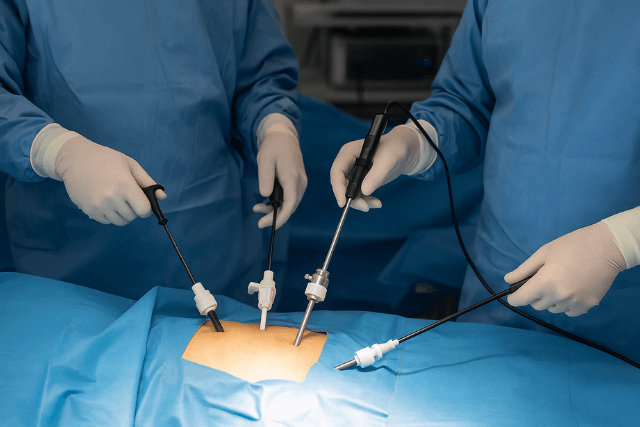Bariatric surgery has become a transformative solution for those struggling with obesity and its related health conditions. However, life after bariatric surgery is much more than just shedding pounds. It requires a shift in habits, ongoing medical monitoring, and a commitment to making long-term lifestyle changes. For individuals who have undergone this procedure, it’s essential to understand what comes next and how to maintain results effectively.
What Is Bariatric Surgery?
Before diving into life after bariatric surgery, it’s important to first understand what the surgery entails. Bariatric surgery refers to a variety of procedures that help individuals with severe obesity lose weight. These surgeries alter the digestive system in some way to limit the amount of food the body can take in or how food is absorbed. Common types of bariatric surgery include gastric bypass, gastric sleeve, and adjustable gastric banding.
These surgeries can lead to significant weight loss and improve or resolve related health conditions like type 2 diabetes, hypertension, and sleep apnea. However, they also come with lifelong commitments and challenges that must be addressed for the best long-term outcomes.
Life After Bariatric Surgery: Early Stages and Immediate Changes
The first few months after bariatric surgery are crucial for your recovery and success in maintaining results. During this period, it’s normal to experience a significant drop in weight, but this initial phase also comes with a range of physical and emotional changes.
Recovery and Healing Time
After your surgery, your body needs time to heal. This process typically lasts for several weeks. Immediately following the procedure, you’ll likely experience soreness, fatigue, and possibly some discomfort. During the first few days, you may need to follow a liquid diet to allow your body to adjust. Over time, you’ll gradually transition to soft foods and then solid foods.
Initial Weight Loss
In the first 6 months to a year after surgery, weight loss is usually rapid, and many individuals see a significant change on the scale. This happens because your stomach is smaller, limiting the amount of food you can eat. Additionally, bariatric surgery also alters the hormones that control hunger, which can significantly reduce your appetite.
However, it’s essential to remember that this initial phase is not permanent. Over time, weight loss may slow, and your focus should shift toward maintaining the progress you’ve made.
What to Expect Physically After Bariatric Surgery
The changes in your body after bariatric surgery are not just limited to weight loss. You’ll likely experience physical changes that will require you to adjust your lifestyle.
Increased Energy Levels
Many patients report feeling a boost in energy levels after losing weight. This is because obesity often contributes to fatigue and other health issues that limit daily activity. As you lose weight and improve your overall health, you’ll likely find that you have more energy to engage in physical activities.
Changes in Digestion
After bariatric surgery, your digestive system will work differently. You may experience changes such as reduced stomach capacity, altered absorption of nutrients, and even changes in bowel movements. This may require some adjustments to your eating habits, such as eating smaller, more frequent meals and taking vitamin supplements to prevent deficiencies.
Loose Skin
As you lose weight, your skin may not shrink at the same rate. For many individuals who lose a significant amount of weight, loose or sagging skin can become a concern. While some degree of loose skin is normal, there are options for individuals who want to address this issue, including surgery or non-invasive treatments.
Emotional Changes After Bariatric Surgery
While the physical changes are often noticeable, the emotional changes after bariatric surgery are just as important to understand. Many individuals report feeling a mixture of relief, excitement, and sometimes even guilt or anxiety. It’s important to recognize that emotional and psychological support is key in your journey.
Body Image Changes
As your body changes, your self-image may shift as well. You might feel more confident, but you could also experience moments of insecurity as you adjust to your new body. These feelings are natural and can be managed with therapy or support groups. Talking to others who have undergone the surgery can provide a sense of camaraderie and encouragement.
Dealing with Food and Emotional Triggers
For many individuals who struggle with obesity, food is often tied to emotions. After bariatric surgery, emotional eating triggers may still exist. It’s crucial to address the underlying emotional issues that may have contributed to overeating in the past. Therapy, support groups, and learning new coping strategies can help you manage these triggers.
Mental Health Support
Many bariatric surgery patients benefit from ongoing mental health support. Whether through counseling, therapy, or support groups, addressing any emotional and psychological concerns is essential to maintaining long-term success.
How to Maintain Results After Bariatric Surgery
Maintaining the weight loss results after bariatric surgery is a lifelong commitment. Success depends on adopting new habits, staying active, and making mindful decisions about your health. Here’s how you can keep the weight off and maintain your results:
Follow a Healthy Eating Plan
While bariatric surgery restricts the amount of food you can eat, it’s important to focus on the quality of what you eat. Consuming a balanced diet with lean proteins, whole grains, fruits, and vegetables is essential. You may also need to take vitamins and supplements to prevent nutrient deficiencies, as your body’s ability to absorb certain nutrients may be limited.
Exercise Regularly
Exercise is a critical component of maintaining weight loss. While you may not be able to engage in intense exercise immediately after surgery, regular physical activity will help you stay healthy, improve energy levels, and prevent weight gain. Aim for a mix of cardio and strength training to boost metabolism and maintain muscle mass.
Stay Hydrated
Drinking enough water is essential for overall health, especially after bariatric surgery. Dehydration can lead to complications such as kidney stones and electrolyte imbalances. Try to drink at least 64 ounces of water per day, but avoid drinking large amounts of water during meals, as it can lead to discomfort.
Regular Follow-ups with Your Healthcare Team
Your healthcare provider will be instrumental in helping you maintain long-term results. Regular follow-up appointments with your surgeon or dietitian are crucial to monitor your progress and make any necessary adjustments. These visits also help identify any potential issues early on, such as nutritional deficiencies or weight regain.
Manage Stress
Stress can interfere with your ability to maintain results after bariatric surgery. Learn stress management techniques such as deep breathing, meditation, or yoga. Finding healthy ways to cope with stress can prevent emotional eating and support overall well-being.
Dealing with Setbacks and Plateaus After Bariatric Surgery
It’s important to remember that weight loss after bariatric surgery is not always linear. Many people experience periods where their weight loss slows down or plateaus. If this happens, don’t get discouraged. It’s normal, and there are strategies you can employ to push past these plateaus.
Revisit Your Eating Habits
If you’re not seeing the same results as before, it might be time to revisit your eating habits. Evaluate your portion sizes, meal choices, and eating patterns. Ensuring that you are sticking to a balanced, nutrient-dense diet is crucial during these times.
Increase Physical Activity
If you’ve become less active over time, now might be a good time to step up your exercise routine. Adding variety to your workouts can jump-start your metabolism and help you overcome any weight-loss plateaus.
Consult with a Professional
If you’re struggling with weight regain or find yourself frustrated with a plateau, consider seeking guidance from a healthcare professional. A dietitian, therapist, or fitness trainer can provide the expertise and motivation you need to get back on track.

Conclusion: Thriving After Bariatric Surgery
Life after bariatric surgery is a journey that requires ongoing commitment, self-discipline, and support. While the weight loss results can be life-changing, it’s essential to focus on maintaining those results through healthy eating, regular exercise, and emotional support. Keep in mind that bariatric surgery is just the beginning. The real work starts after the procedure when you begin to adopt new, healthier habits for the long term.
With dedication and perseverance, you can lead a healthy and fulfilling life after bariatric surgery, enjoying the benefits of improved health and well-being. Don’t hesitate to reach out to your healthcare team for ongoing support and guidance, as they will be with you every step of the way.



